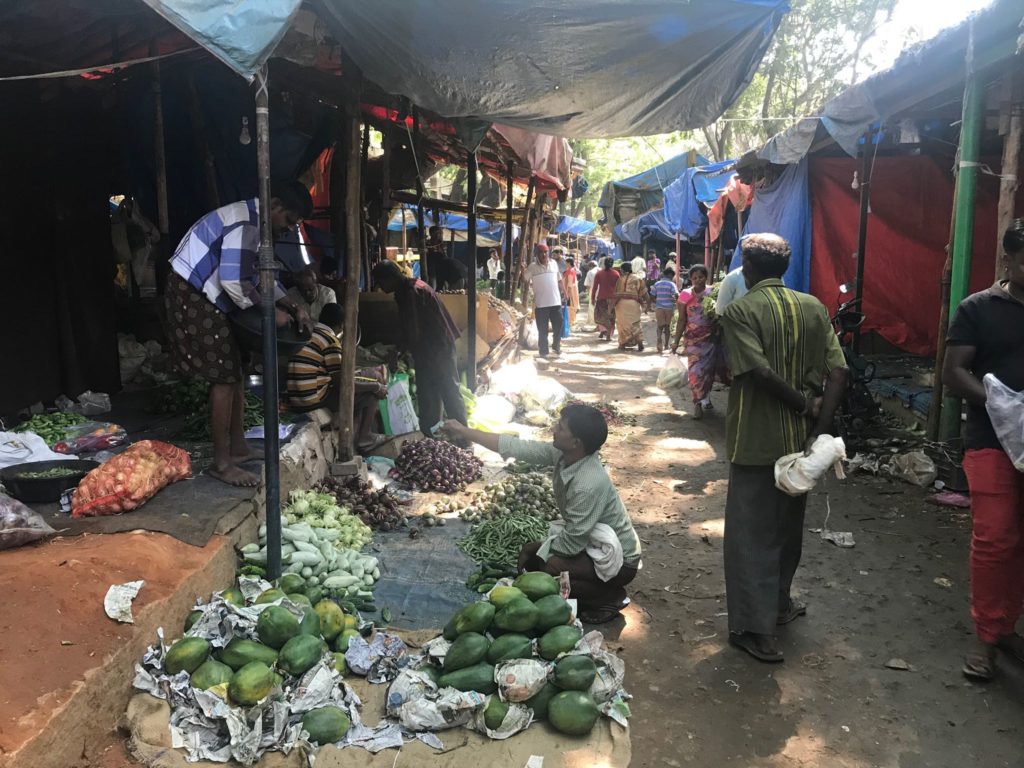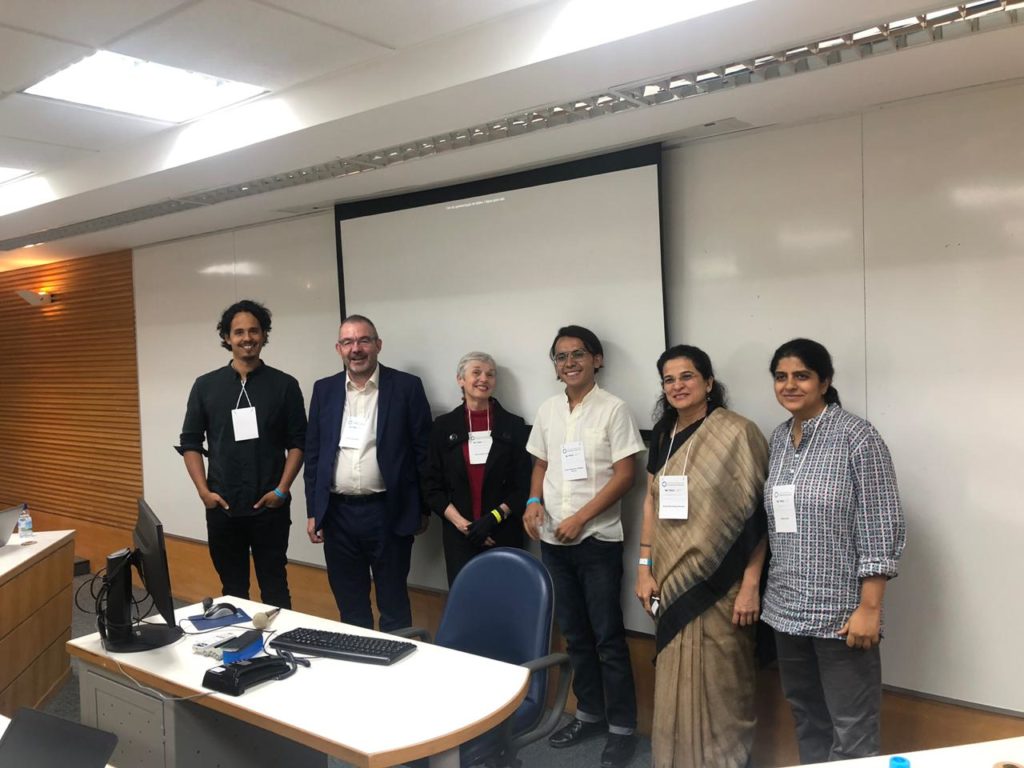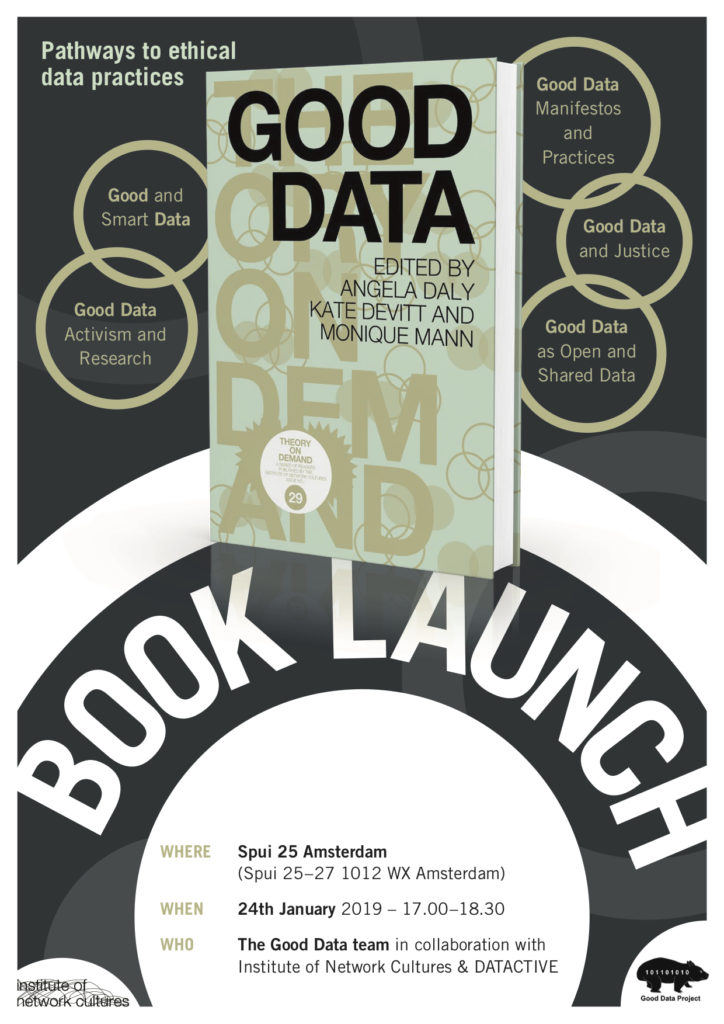By Jelke Bosma, Eva Mos & Niels van Doorn
Things are bad right now and they will probably get worse in the future. Once the global pandemic caused by COVID-19 is finally under control, the afterlife of this public health crisis is likely to have a devastating impact on our national and local economies for years to come. But not everyone will be affected in the same way and to the same extent. We have already witnessed how the pandemic has brought long-standing inequalities with respect to income and wealth distribution into sharp relief. Some social groups have access to the resources (e.g. time, space, capital, influence) necessary to weather this crisis, or even make a profit from it, while many others scramble to protect their lives and livelihoods. In many ways, COVID-19 intensifies and accelerates these inequalities and will ultimately push them to a breaking point, a point that even conservative governments have been trying to steer clear of by introducing economic rescue plans.
Importantly, the ongoing platformization of labour and livelihoods embodies a similar logic of intensification and acceleration. While the term “disruption” has been overused—and poorly describes the economic and social impacts that platforms like Uber, Airbnb, or Deliveroo are having—we nevertheless think it is safe to say that these impacts are significant. Platform companies are reorganizing how people work and make a living, and how citizens and their governments manage and take care of others. Emerging in the wake of the 2008 recession, they have exacerbated the unequal distribution of opportunities and risks along lines of class, gender, race, and nationality—even when they claim to empower working people.
Over the past few weeks it has become clear that things are no longer ‘business as usual’ for these companies, as they are not only facing new challenges but seizing opportunities that have arisen from the current crisis. Meanwhile, we are seeing new local platform-based initiatives springing up, driven by networks of citizens as well as private organizations aiming to assist the most vulnerable members of their communities.
Various news outlets have reported that the popularity of on-demand delivery services has grown massively in cities across the globe, especially in large metropolitan areas now dealing with increasingly severe lockdowns.1 In New York City, for instance, couriers for food delivery platforms like DoorDash and Caviar are facing an ambivalent situation. Whilst workers realize that their services are more needed than ever, at the same time they are worried about their health and safety because these platform companies offer no proper protections or insurances to independent contractors.2 While many workers take pride in their job and half-jokingly praise the empty streets in Manhattan, they also feel they should not have to invest in protective gear. Quite a few couriers warn that social distancing is often impossible when waiting at a restaurant with other delivery workers.
Although most delivery companies have by now arranged their own financial assistance programs for couriers who get infected or are required to self-quarantine, these initiatives generally offer relief up to just 14 days and require them to submit documentation that is difficult to obtainin times of crisis.3 With such high application thresholds, it is unclear how many couriers have gained access to these emergency funds, which appear to be little more than a public relations strategy.
Beyond these limited reactive measures, which force couriers to keep working until they are physically or legally unable to work, companies like Uber, DoorDash, and Deliveroo continue to disavow responsibility for their workforce by fighting reclassification legislation that would force them to provide a more comprehensive safety net. Instead, Uber’s CEO has recently petitioned the US Federal government to step in and provide the protections America’s new first responders now need more than ever.4 In fact, he recently got what he wanted, which may have negative implications in the future.
The abovementioned companies, in tandem with Amazon, are primarily focused on expanding their delivery markets by further rolling out and diversifying their outsourced logistical services. NYC’s ride-hailing industry is taking a big hit due to COVID-19, which is also wreaking havoc on the restaurant and hospitality industry.5 In response, drivers and restaurant workers are turning to delivery platforms to salvage part of their income, while Uber and Amazon are exploring the possibility of delivering test kits in the near future.6 Uber and Lyft are also trying to capitalize on an increased need for the private transportation of vulnerable people and critical goods through their Uber Health and LyftUp initiatives, respectively.7
Meanwhile, DoorDash is partnering with NYC’s government to deliver food to “medically fragile students,” and has also launched a “package of commission relief and marketing support” for new and existing partner restaurants.8 DoorDash is investing heavily in COVID-induced market growth. The company allows new restaurants to sign up for free and pay no commissions for 30 days, and it creates priority access for restaurant workers looking to start as Dashers. Across the Atlantic, the situation in Amsterdam and Berlin looks a bit different. While delivery companies in these cities are also signing up scores of restaurants that have had to close their doors to dining customers, couriers working for Deliveroo, TakeAway, and/or Uber Eats are not yet seeing a similarly high boost in orders. Neither are they getting the tips or bonus incentives one may hope for during this crisis.
In Amsterdam, couriers who have a financial buffer are staying home as much as possible, particularly students for whom the pay-outs are not worth the risk. Still, the streets continue to fill with food delivery workers, many of whom are immigrants with little choice but to keep working regardless of how bad the circumstances get. Other sources of income have mostly been discontinued and, like their peers in NYC, they are only receiving standard emails and notifications from platform companies warning them to keep their distance and fulfil the logistical promise of contact-free delivery. That this promise is a fantasy becomes painfully clear when picking up an order at an otherwise closed McDonald’s restaurant, where more than a handful of waiting couriers converge around the door each time it opens wide enough to push the next bag of fast food through.
Another thing we are not yet seeing in European cities is the kind of crisis-driven service diversification and public-private partnerships that platform companies are currently experimenting with in the US This might soon change, however, as Deliveroo, JustEat, and Uber are allegedly all in conversation with the British Government about providing delivery support to elderly and vulnerable people.9 Due to the conjunction of an increased public need for logistical solutions and a decreased demand for ride-hailing services across Europe, Uber may be looking for similar ways to reallocate its drivers in other countries.
Ride-hailing is not the only segment of the gig economy to be negatively impacted by COVID-19. Due to mandatory social distancing and home quarantine measures, domestic cleaners working through platforms such as Handy and Helpling are losing most of their income. In the Netherlands, for instance, Helpling bookings are down 40% and the cancellation rate is expected to rise to 50-60%.10 Cleaners in Amsterdam—mostly immigrants—are facing difficult times, since most of their clients have asked them to stay away until further notice. One cleaner said she lost about 1,200 euros over the last two weeks and is now fully dependent on her partner’s income. When asked whether she had checked her eligibility for financial assistance—which the Dutch government recently made available to independent contractors hit by the COVID-19 crisis—she admitted having no idea such a rescue program existed, let alone if she would qualify. Her response highlights the vulnerability of migrant gig workers, who often do not master the native language and have trouble accessing information pertinent to their livelihood. Even when access is obtained, navigating the red tape in a foreign bureaucracy can be exceedingly difficult.
In conclusion, the pandemic is impacting the gig economy in two significant ways. First, it accelerates the ascendency of on-demand delivery as the dominant and most rapidly expanding service market, at the expense of ride-hailing and domestic cleaning. Secondly, it intensifies gig platforms’ experimentation with public-private partnerships and forms of service provision that cater to special needs populations. By seeking new ways to support the social reproduction of vulnerable consumer groups during a time of crisis, while continuing to discard the reproductive struggles of their workforce, platform companies are leveraging this public health crisis in a bid to become increasingly infrastructural. That is, COVID-19 generates a state of exception that offers companies a window of opportunity to test-drive their desired scenario of becoming privatized digital utilities that control and monetize critical data flows.11 The question that remains is, to what extent will this state of exception become the rule?
Jelke Bosma is a PhD candidate in the Department of Media Studies, University of Amsterdam. His research is part of the project Platform Labor, funded by the European Research Council, which investigates dynamics of value on Airnb. He has a background in Urban Studies and his research interests include platform urbanism, housing and urban theory. He tweets at @jelkejelke.
Eva Mos is a PhD candidate working in the Platform Labor project at the University of Amsterdam. With a BA and MA in Sociology, Eva traces and studies intersections between welfare state transformation and the platform economy. She does so through ethnographic study of post-welfare platforms operating in Amsterdam and Berlin. She tweets at @EvaMos5.
Niels van Doorn is Assistant Professor of New Media & Digital Culture at the University of Amsterdam. He is also the Principal Investigator of the European Research Council-funded Platform Labor research project (2018-2023). His current work focuses on the platformization of labor and social reproduction in post-welfare societies.
Footnotes
1 Tyler Sonnemaker, ‘Instacart Plans to Add 300,000 Additional Workers as Demand Surges for Online Delivery’, Business Insider, 23 March 2020, https://www.businessinsider.com/instacart-to-add-300000-shoppers-as-online-grocery-delivery-surges-2020-3; Sean Captain, ‘What It’s like to Be a Delivery Worker in the COVID-19 Era’, FastCompany, 24 march 2020, https://www.fastcompany.com/90480629/what-its-like-to-be-a-delivery-worker-during-the-covid-19-pandemic; Alina Selyukh, ‘From Grocery Stores To Pizza Delivery, Some Companies Are On A Hiring Spree’, NPR.org, 24 March 2020, https://www.npr.org/2020/03/24/820624379/from-grocery-stores-to-pizza-delivery-some-companies-are-on-a-hiring-spree.
2 Kate Conger, Adam Satariano and Mike Isaac, ‘Pandemic Erodes Gig Economy Work’, The New York Times, 4 April 2020, https://www.nytimes.com/2020/03/18/technology/gig-economy-pandemic.html.
3 Dara Kerr, ‘Gig Workers Say Sick Pay for Coronavirus Is Hard to Come By’, CNET, 26 March 2020, https://www.cnet.com/features/gig-workers-with-covid-19-symptoms-say-its-hard-to-get-sick-leave-from-uber-lyft-instacart/.
4 Edward Ongweso Jr, ‘Uber Asks US Government to Give Its Workers Health Insurance’, Vice, 23 March 2020, https://www.vice.com/en/article/8847qb/uber-asks-us-government-to-give-its-workers-health-insurance.
5 Sean Captain, ‘What It’s like to Be a Delivery Worker in the COVID-19 Era’, FastCompany, 24 march 2020, https://www.fastcompany.com/90480629/what-its-like-to-be-a-delivery-worker-during-the-covid-19-pandemic; Austa Somvichian-Clausen, ‘How NYC’s Restaurant Industry Is Surviving amid Coronavirus Closures’, TheHill, 20 March 2020, https://thehill.com/changing-america/respect/accessibility/488670-how-nycs-restaurant-industry-is-surviving-amid.
6 Sarah Emerson, ‘Amazon and Uber Suggest Delivering Coronavirus Testing Kits. Gig Workers Are Worried’, Medium, 20 March 2020, https://onezero.medium.com/amazon-and-uber-suggest-delivering-coronavirus-testing-kits-gig-workers-are-worried-2c7b550604e1.
7 ‘Uber Considers Med Delivery As Riders Plummet’, PYMNTS.Com, 20 March 2020, https://www.pymnts.com/news/ridesharing/2020/uber-considers-med-delivery-as-ridership-plummets/; ‘Supporting Our Community’, Lyft, 20 March, 2020, https://www.lyft.com/blog/posts/supporting-our-community.
8 @NYCMayor, ‘We’re also partnering with @DoorDash to get food to the homes of medically fragile students. No child will go hungry. Not on our watch.’, Twitter post, 21 March, 1:22 AM, https://twitter.com/NYCMayor/status/1241158218396708865; Tony Xu, ‘Supporting Local Businesses and Communities in a Time of Need,’ DoorDash, 17 March 2020, https://blog.doordash.com/supporting-local-businesses-and-communities-in-a-time-of-need-41c0742fbc03.
9 Rowland Manthorpe, ‘Coronavirus: Takeaway Firms JustEat and Deliveroo in Talks with Government on Providing Care Packages to Elderly,’ Sky News, 16 March 2020, https://news.sky.com/story/coronavirus-takeaway-firms-justeat-and-deliveroo-in-talks-with-government-on-providing-care-packages-to-elderly-11958494.
10 Hella Hueck, ‘De Werkster Is Ineens Niet Meer Nodig’, The Financial Times, 23 February 2020, https://fd.nl/ondernemen/1338913/de-werkster-is-ineens-niet-meer-nodig?fbclid=IwAR2oIf3-H5mzafmgS4hgx2WJU77JLdlQhLnoG3AlJTWIbjSUe9qQCpdAcZs.
11 Julie Yujie Chen and Jack Linchuan Qiu, ‘Digital Utility: Datafication, Regulation, Labor, and DiDi’s Platformization of Urban Transport in China,’ Chinese Journal of Communication 12, 3 (July 3, 2019).









